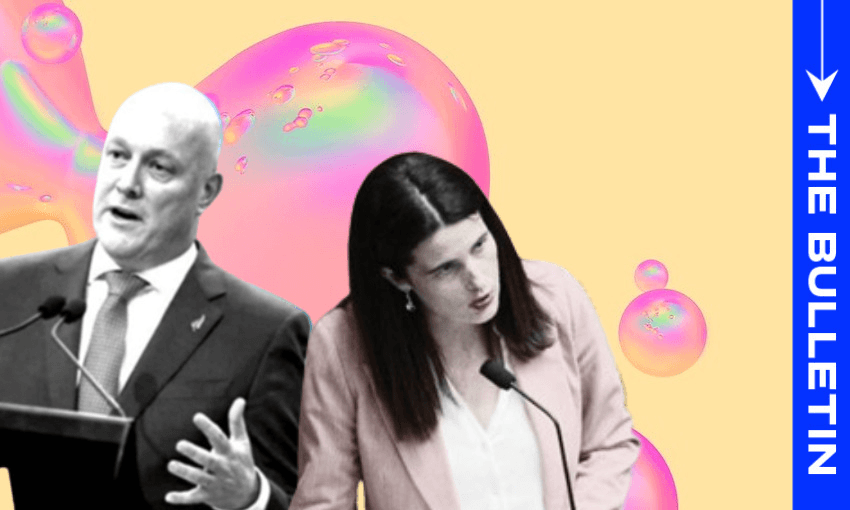Just how “average” does your household need to be to get the promised $250 tax cut, wonders Catherine McGregor in this excerpt from The Bulletin, The Spinoff’s morning news round-up. To receive The Bulletin in full each weekday, sign up here.
What makes an ‘average’ household?
For politics watchers, including the writer of this newsletter, it felt like deja vu. Once again National was on the back foot over its tax plan, fighting off allegations that what it was promising the public was far from what it could actually deliver. This time it wasn’t tax paid by foreign buyers, but tax cuts promised to “average” households that were under dispute. Data published by the Council of Trade Unions showed that only 3,000 households will receive the full $250 fortnightly tax cut that National has been promoting. Labour’s Grant Robertson calls it a “scam”; National’s Nicola Willis says they had been clear that $250 was a maximum, and the actual tax cut received would depend on individual circumstances. Still, as Derek Cheng writes in the Herald (paywalled), if you “had kids and earned an average wage” you’d have been forgiven for thinking you’d get the full tax cut.
Peters appears to forget his own GST policy
GST was also the subject of perhaps the most interesting story to emerge from last night’s TVNZ minor leaders debate. Asked whether he supported removing GST from food, NZ First leader Winston Peters said he did not. Just one problem: the party’s own manifesto, published just moments before the debate commenced, said it would do exactly that. “We will take GST off basic foods including fresh food, vegetables, meat, dairy, and fish,” its policy page read – and you can’t get much clearer than that. Still, Peters insisted that NZ First would only consider removing GST from food, and the web page was quickly updated to reflect this new policy. Writing alongside Stewart Sowman-Lund on The Spinoff this morning, Shanti Mathias says Peters’ answers “[often] made very little sense – evidence of how thin New Zealand First’s public policy platform seems to be this election”.
Would Seymour as deputy PM create even more drama with Peters?
The debate, hosted by election MVP Jack Tame, also featured Te Pāti Māori’s Rawiri Waititi, the Greens’ James Shaw and Act’s David Seymour. While the TVNZ post-debate panel thought Shaw was the winner on the night, it was again Seymour vs Peters that created the most drama. Their deep animosity should have Luxon “extremely worried”, said commentator Janet Wilson. The risk of open warfare may well lessen Seymour’s chances of becoming deputy prime minister, and strengthen the claim of current party deputy Nicola Willis – an outcome the public would support, according to a TVNZ/ Verian poll. If National forms a government, 34% of respondents would want her as deputy PM, as opposed to 21% each for Seymour and Peters (despite Peters’ chances of getting the role being less than none).
Introducing: the ministers for space and red tape
And still the policy announcements keep on coming. Chris Luxon used a visit to RocketLab as a launchpad (no pun intended) for National’s aerospace policy, including the establishment of a new role of minister for space. The New Zealand Space Agency currently leads space policy from within the Ministry of Business, Innovation and Employment. Creating a ministerial portfolio might direct more attention to the industry, writes Newsroom’s Matthew Scott, but it’s difficult to see what other benefits it would bring when much of the role “seems to be already covered by this pre-existing agency”. Act announced it would establish a “minister for red tape”, charged with investigating regulations in various sectors and recommending cuts. And Labour said it would set up an anti-scamming unit aimed at “stopping scammers in their tracks”.
